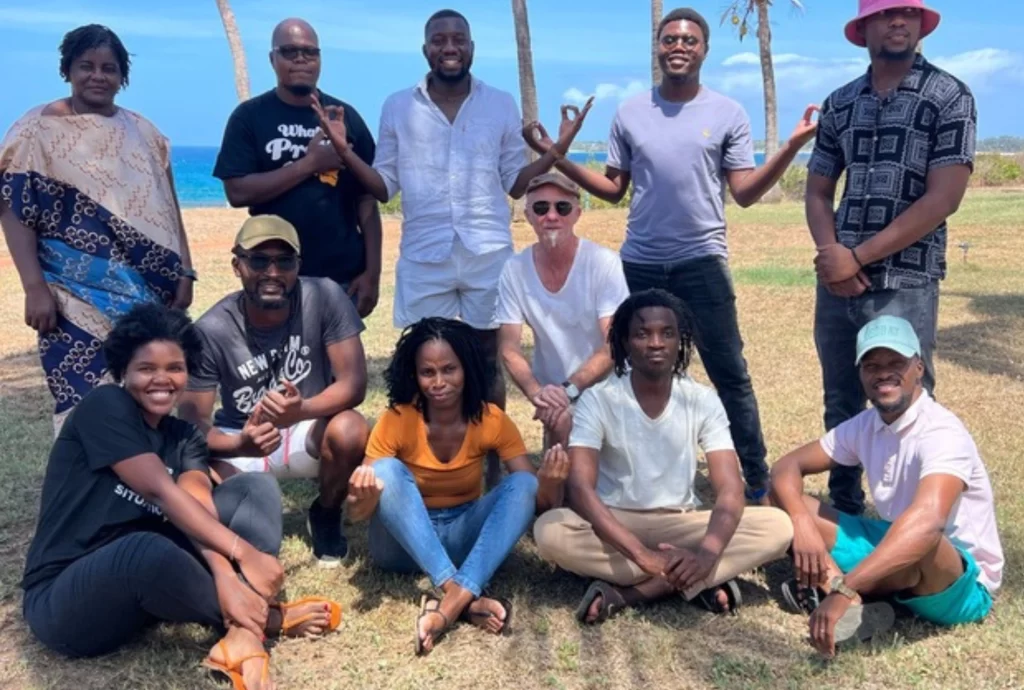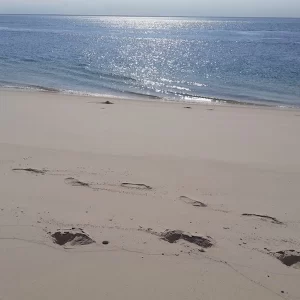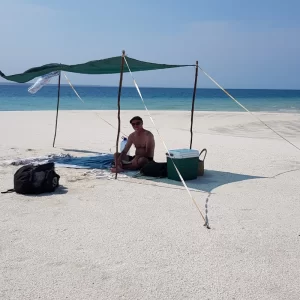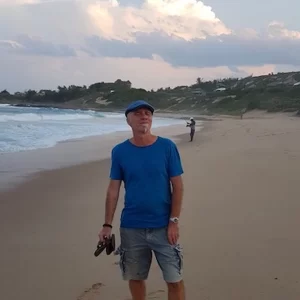Taking Mindfulness to the Conflict Zone in Mozambique
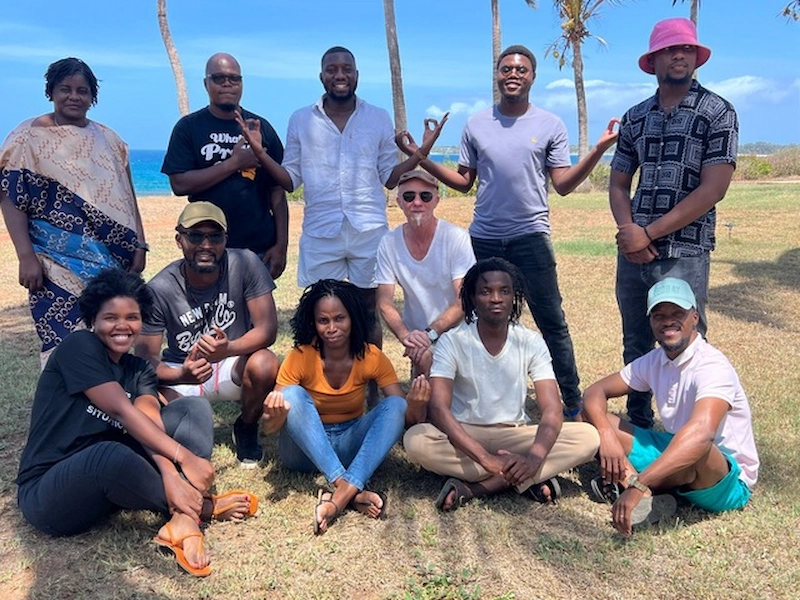
“If you have no compassion for yourself, then you are not able of developing compassion for others” The Dalai Lama
It was such a great experience to recently lead a three-day stress-reduction mindfulness retreat for a group of young Mozambican psychologists working for an NGO in the northern conflict zone of Cabo Delgado in Mozambique.
I was working with the team who works for the UN organisation, the International Organisation for Migration (IOM) who do a great job in their region, offering psychosocial support and mental health care to displaced people streaming into the city of Pemba from the conflict zone. Now it was their turn to de-stress from the stressful environment in which they work. Mindfulness can help with this.
A Retreat for IOM in Pemba, northern Mozambique
Pemba is in the northern part of Mozambique and is the southern city in this province that has been experiencing conflict since 2017 and where IOM does important work.
I took a roundabout way to get there – first flying to Maputo, staying overnight, and then flying up to Pemba, where IOM and many other international help organisations, are based.
Pemba was the very first place that Christina and I came to in Mozambique way back in 2008.
I remember it well – taking public minibuses all the way from Zambia almost made me never want to come back to Africa. We came for the fabulous diving there and I was happy to see that Pieter’s Place, and Pieter himself, where we stayed and made our dives from, are still in Pemba, despite the many changes that have come to the city. Now, there are army trucks and soldiers on the streets, and hundreds of NGO jeeps racing around while they do their work here.
Our retreat took place in the Avani Pemba Beach Hotel and the small team of 10 people gathered with me to begin our three-days together. If I am being honest, I was a tiny bit nervous – teaching real psychologists about how their minds work from the Buddhist viewpoint could have been a challenge. But I needn’t have worried – the group were open to learning more about meditation, how our minds work and how our thinking mind contributes to our stress and anxieties.
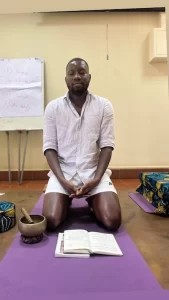
Self-Care for Caregivers
The team and their support staff had constantly been giving to others. Caregivers often ignore the physical, emotional and mental demands on themselves as they care for others. Now it was time to take care of themselves and their own mental health needs.
We spent the days learning how to reduce personal stress through mindful meditation and practicing self-compassion and being kind to ourselves. Being kind to ourselves is never a given. More often than not, we take care of others and neglect our own needs. But as they always say before a flight – you need to put on your own oxygen mask before you can help others.
Mindfulness Based Stress Reduction for aid workers
It was interesting to explore meditation with the group and see how they applied it to their own work and lives. Together we explored practices from Mindfulness Based Stress Reduction and Mindfulness for Life (Oxford University), including how to recognise stress in our bodies, how we are naturally hardwired for stress and how we deal with pleasantness and unpleasantness in our lives. We also learned how to respond to stressful situations instead of reacting to them in our usual habitual ways.
The RAIN Meditation
From the Buddhist psychological model, we explored the concept of feeling tone (vēdana) and how being mindful of this can also help us respond instead of reacting. And I taught core practices such as ‘RAIN’ to help us with the practice of accepting the present moment, whatever it holds for us.
CARE Self-Compassion Course
Finally, we practiced specific self-compassion meditations developed from my own ‘CARE’ programme that I have developed.
I learned a lot working with this young group and how they see themselves as a tight family doing the important work that they do. I saw their dedication to their work and their friendship together, which surely will help as they go back to the field in this troubled region.

Mindfulness for Aid and Humanitarian Workers
I would love to find other organisations who want to take this approach with their workers in the field.

